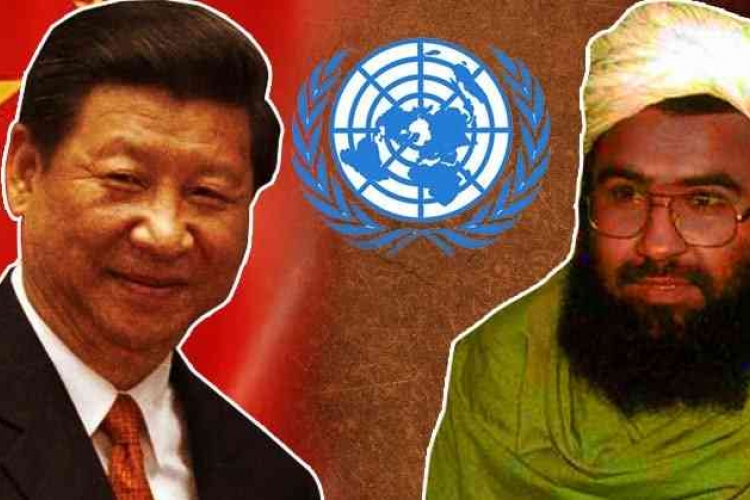India - Masood Azhar - China
Making sense of India-China conundrum over Mazood Azhar
Who is Maulana Mazood Azhar?
Azar is the founder and leader of the terrorist organisation Jaish-e-Mohammed, active mainly in the Pakistani administered Azad Kashmir.He was jailed in India for five years, inspiring the 1999 hijacking that led to his release by the Indian government. The JeM, led by Azhar, carried out an assassination attempt on a Pakistani President (Gen. Pervez Musharraf, 2003), masterminded the attack on the Indian Parliament and worked in with al-Qaeda and Osama on a number of terror projects.
What is the Kashmir link?
In recent years, the JeM has been accused of a series of attacks in Jammu and Kashmir and the Pathankot attack. The JeM claimed responsibility for the Pulwama strike, yet Azhar appears to retain a free hand from the government in Islamabad, and has Beijing’s powerful backing. China, despite okaying a ban against the JeM more than a decade ago, has vetoed all attempts to place Azhar on the UN Security Council’s list of terrorists. India, the U.S., France, Germany and the U.K. have tried at various times to have Azhar branded as a global terrorist by the 1267 Committee, but China has vetoed the move by putting ‘technical’ holds. If Azhar is listed as a terrorist by the Security Council, he will face a global travel ban and assets freeze.
What happens when the committee designates someone as a global terrorist?
The Sanctions Committee of the UN Nations Security Council was established under Resolution 1267 in 1999, which imposes sanctions.such as freezing economic assets, imposing travel ban etc.
Why China support Pakistan?
Perhaps the biggest reason for Pakistan’s close friendship with and deep dependence on China is—which increased after the United States suspended its security assistance to Pakistan last year. China vetoing is signalling an chinese Effort to support pakistan as well as its own strategic interest and it’s stakes.Given that the Belt and Road Initiative ,a expansive project, sees threat from JeM since its project passes through pakistan and JeM role in pakistan and its previous pakistan attacks.Nor india or china wishes, china to be a mediator of peace between india and pakistan but china wants stability in the region. OBOR can’t succeed if you have rampant instability in the region. And hence China wanted to signal it’s support to pakistan.
The Indian move is quite ‘symbolic’ to designate Azhar. Symbolic because nothing would change really in reality for Azhar but it will send a powerful message to pakistan as well as the world about pakistan.
What are other options ?
India should look into other international forums ,other than UN to gain consensus against terrorism in pakistan. India should learn from it’s past lesson of taking kashmir to UN and capitalise it’s influence and growing international support and consensus in other international forums.In the recent Brics ,heart of asia statements by china to pakistan is to control the terrorist situation. Listing of Azhar is ‘symbolic’ in a way that india change china’s position on pakistan. India should look into options of joining the OBOR initiative as a part of its Asia first policy and change china’s position to crack down on terror which may pose a threat to the OBOR initiative by seeking a common interest , by changing China’s position on pakistan.
At the same time India should be careful about blacklisting Pakistan in FATF from its present Greylisting position , since it will cause economic loss to pakistan as foreign investments will reduce added to its weak economy may further destabilise the region.
Role of Vested Interest
U.S sees China as its core strategic rival and it’s foreign policy is driven by a need to push back against China’s rise. And India is very important as Washington sees it. It envisions a key role for India to provide a power balance and sees India as a key critical strategic partner and china as an critical strategic rival in the global level and this makes China to hold a strong position towards pakistan. India should be cautious about its approach using its role and U.S. interest to maintain peace and stability in the region as well as achieving its interests.


 "UPSC-2026-PRELIMS COMBINED MAINS FOUNDATION PROGRAMME" STARTS WITH ORIENTATION ON FEB-10
"UPSC-2026-PRELIMS COMBINED MAINS FOUNDATION PROGRAMME" STARTS WITH ORIENTATION ON FEB-10